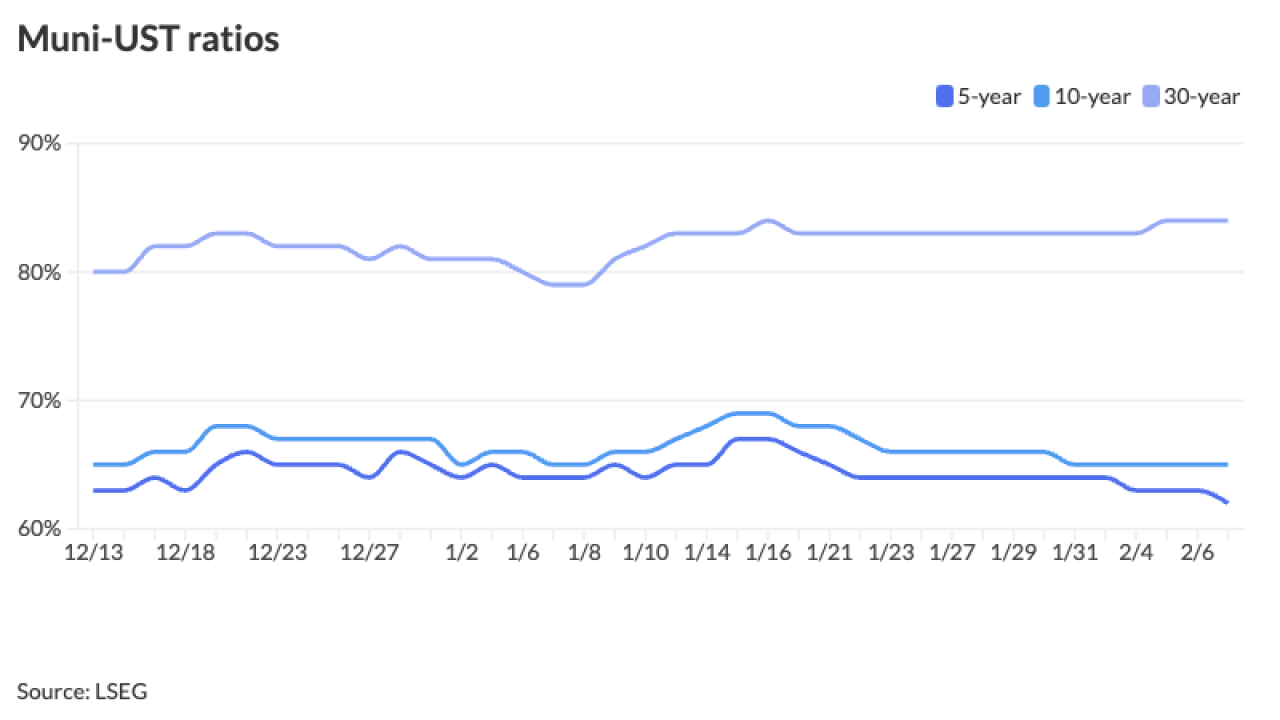WASHINGTON – The growth of e-commerce is expected to have a negative long-term impact on sales tax revenue bonds issued by county and municipal governments, S&P Global Ratings said in a report released Monday.
The report highlights how store closure announcements by major retailers are having an impact on local level sales tax revenue, particularly as some shopping malls are losing their major tenants.
Meanwhile, statewide sales tax revenue bonds won't see significant degradation because states are working to solve their revenue collection problems associated with remote sales, S&P said.

Nor does the trend affect sales tax revenue bond ratings in the short- to medium-term, said Helen Samuelson, a public finance credit analyst for S&P in Chicago who co-authored the report.
“I guess caution is a good word to use,’’ Samuelson said. “E-commerce is taking a larger percentage of sales. It’s up to 10% currently. In 2016 it was 6%. And it has some ramifications for local municipalities.’’
Among the 45 states that collect sales taxes, there are hundreds of counties, cities and other municipalities that levy additional sales taxes.
S&P issues ratings for sales tax revenue bonds sold by a total of 687 states and localities.
Local sales tax revenue bonds are most common in Arizona, Colorado, Florida, Iowa and Utah. Localities in other states such as Illinois and Minnesota rely on general obligation bonds.
Some communities are dealing with the changes caused by e-commerce by considering restructuring their debt or issuing other types of debt, Samuelson said.
And some states have looked at widening their sales tax base by taxing services such as dry cleaning, car washes and nail salons.
A majority of states, meanwhile, have endorsed the Streamlined Sales Tax Agreement, which eases the way for congressional legislation that would require major electronic retailers to collect sales tax.
Treasury Secretary Steven Mnuchin recently suggested that enabling state and local governments to collect sales tax on internet purchases could bring them an infusion of revenue to help fund infrastructure.
Advocates of enabling states and localities to collect taxes on remote sales say it would greatly reduce their estimated $26 billion in uncollected tax revenue.
The bipartisan Marketplace Fairness Act proposed in the Senate would allow states to collect sales taxes on remote sales if they adopt the multi-state Streamlined Sales and Use Tax Agreement or an alternative simplification standard.
Small businesses with less than $1 million in annual sales would be exempt from the bill.
Amazon, which Slice Intelligence estimates accounts for 43% of online sales, began collecting sales tax on its own products in all 45 states with sales tax in April. Amazon still does not collect sales tax for products sold through its website by third-party vendors.





